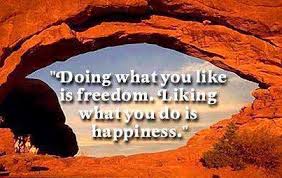A Guest Post by Travis Heermann
Discipline.
A professional writing career lives and dies by discipline—or the lack thereof.
Maybe you have talent, but talent is only the beginning.
There’s honing one’s craft (got to practice and study until professional-level prose is automatic). There’s learning how to deal with rejection (growing a callus on one’s heart). There’s learning how to market one’s work effectively (most writers revile, loathe, and despise self-promotion). There’s connecting with a community of other writers, finding your tribe (who will sustain you through the long, dark nights of the soul).
And then there’s the simple fact that one has to insert one’s backside (Tab A) into the chair (Slot B), apply one’s hands to scribing tools (Assembly C), and wiggle them around until beauty and pathos are released into existence.
It all sounds so simple. But if it were, the world would harbor more professional writers.
It’s easy to pour something onto the page when the flush of inspiration is hot and new, when the Muse is sitting in one’s lap with a martini in one hand, stroking your hair with the other, and whispering thrills into your ear. Call it what you will—The Muse, inspiration, your subconscious, whatever—I’m talking about those moments when you realize two hours have passed and there are many more words on the page now than there were before, artful words poured forth from the chalice of your amazing subconscious.
However, the Muse is a fickle tart and simply doesn’t show up every day.
But you’re the professional. You have to show up to work even when the Muse doesn’t. You have to slog it out, even when the Muse is out there draping her(him)self over the lap of some other writer. The bottom line is this: the Muse most often visits writers who are working.
It is working that’s the hard part. Carving out a writing schedule when other demands on your time swarm like rabid termites out of the woodwork, and then guarding that time like a snarling, viciously aroused mama tiger, is where the discipline to finish books comes from.
One of the best ways to develop writing discipline is to set daily goals.
- A paragraph.
- A page.
- A thousand words.
- A chapter.
These are all good starts. A thousand words a day is a great round number, because it means in 60-90 days you will have a completed novel draft. If you write 250 words a day, a single page, you’ll have a novel draft in a year.
Regularly meeting a simple, achievable goal helps develop good, steady production habits. After a while, you may find that it becomes easier and easier to meet your production goals. In that case, try ramping up a little. Challenge yourself. Instead of a thousand words a day, try 1,500.
You will find, once you establish reasonably regular butt-in-chair discipline, that the Muse finds you increasingly sexy and comes over for trysts more frequently.
Nevertheless, there are limits. You should push those limits, yes, but you must make sure your goals are achievable. If there is no way you can write 3,000 words in a day, making that your goal, only to fail every single day unless you skip showering and sleep and feeding the kids, is a fabulous way to dive headfirst into the crazy pool. It will destroy your confidence like those dreams where you’re walking around naked at work. The Muse likes you best if you’re properly groomed and smelling nice.
For the last two years, I have successfully completed NaNoWriMo. This year was a real struggle, because I lost more than a week of writing time to travel and household emergencies. But I succeeded—51,000 words in about three weeks. It was a struggle. I had to make sacrifices. Friends and family saw me less often, because I had a goal. And I made it. That success alone was a tremendous confidence boost.
Fortunately I have learned to surround myself with people who understand and support my goals. They miss me, but they’ll get over it when the book is done.
In the coming months, I have a number of goals.
- Finish the third volume of my Ronin Trilogy, Spirit of the Ronin.
- Write seven short stories for various anthologies.
- Launch, promote, and oversee the Spirit of the Ronin Kickstarter campaign.
Creating and running a Kickstarter campaign relates squarely to goal setting, but that’s a topic for another time, except to say I would really appreciate your support. The campaign will launch in mid-January, 2015. Please follow this link to view the Kickstarter campaign, and consider supporting this project.
Then go put your butt in the chair and invite the Muse over for a booty call.

